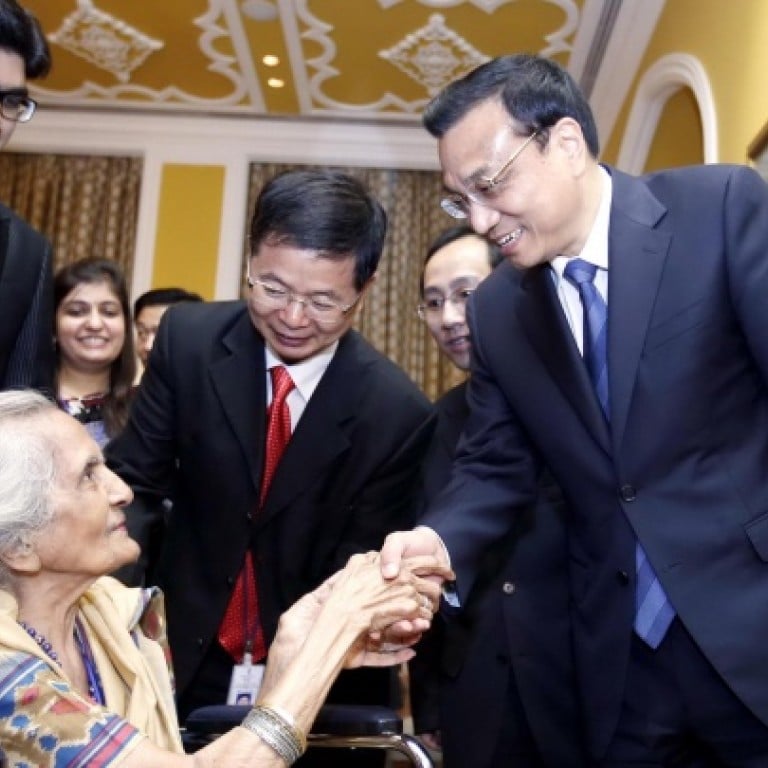
Li Keqiang pays tribute to wartime Indian volunteer medic Dr Kotnis
Premier visits relatives of Dwarkanath Kotnis, who treated troops in Sino-Japanese conflict
China's premier paid tribute to an Indian doctor who died treating Chinese troops more than 70 years ago, becoming a rare symbol of friendship between the two nations.
Li Keqiang , like Chinese leaders before him, took time out of his hectic visit to India to meet relatives of Dwarkanath Kotnis, who provided medical aid for four years during the Sino-Japanese war of 1937-1945.
"The Chinese people will never forget Dr Kotnis," Li told business leaders in a speech in India's financial hub, Mumbai, after meeting the family. He called the doctor "a household name" in China for giving valuable medical help to the Chinese "in their most difficult hour".
"With his two hands, he saved the lives of many soldiers in China who fought against Japanese aggression, but sadly he lost his life, and he gave his life in China," Li said, praising Dr Kotnis as a "Chinese warrior".
Manorama Kotnis, one of the doctor's seven siblings and the only one still alive, met the Chinese premier at the Taj Mahal Palace hotel in Mumbai, along with four of her younger relatives.
"I'm very proud and happy that such a big [personality] still remembers my brother," the 92-year-old said on Monday at her home in Mumbai's Vile Parle suburb, where old pictures of her brother sit proudly on display.
"He was really courageous and he wanted to go out and help people," she said.
While ties between Beijing and New Delhi have often been strained, with a legacy of distrust from a border war in 1962, Kotnis has remained a widely revered figure in China for his war work.
Born in western Maharashtra state, of which Mumbai is the capital, he was one of five medical volunteers dispatched from India in 1938, following a request for help from the fellow Asian giant. Manorama, who was a teenager when her older brother left, said the team was only supposed to go for a year.
But her brother stayed on for four years, joining the Chinese Communist Party and marrying a Chinese nurse, with whom he had a son a few months before he died of epilepsy in 1942, aged 32. The family kept in touch with his widow Guo Qinglan, who died last year and whose portrait sits alongside gifts from high-profile Chinese visitors over the years.
